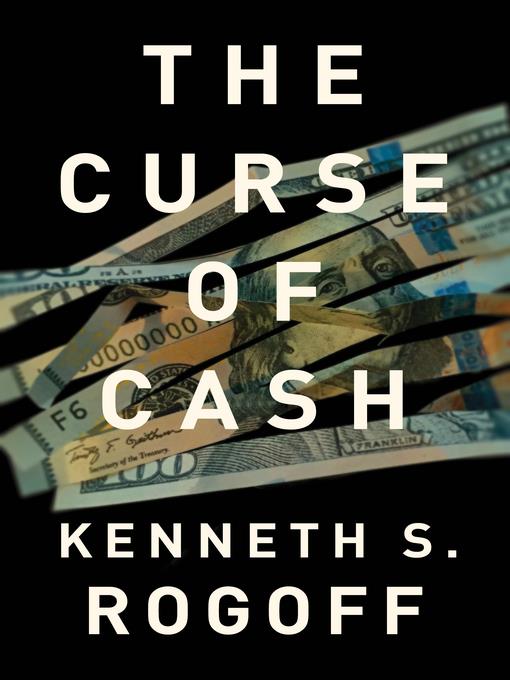
The Curse of Cash
کتاب های مرتبط
- اطلاعات
- نقد و بررسی
- دیدگاه کاربران
نقد و بررسی

July 11, 2016
According to this fascinating economic manifesto from Rogoff (coauthor of This Time Is Different), a public policy professor at Harvard University, money isn’t the root of all evil; cash is, and the sooner it’s rooted out, the better. Why? Cash, he argues, is key to criminal activities: tax evasion, bribery, smuggling, human trafficking, illegal immigration, and more. Cash’s liquidity, anonymity, and ungovernability place it beyond the authorities’ control. Rogoff’s principal concern is not with tax evasion or crime, however, but with the ability of central banks to compel consumer spending during economic crises. If central banks could implement negative interest rates, they would have substantially greater power to combat deflation and avoid recessions—but large cash reserves could defeat such efforts. Rogoff sidesteps the politically sticky problem of governments attempting to take away citizens’ cash. Even if one disagrees with him, Rogoff has collected so many fascinating facts about cash (how much is held abroad, how much is used for criminal activities, how much governments profit from its use) that the book never feels like ivory tower pontification. The result is an absorbing exploration of the uses, and misuses, of currency, and its intractability in controlling modern economies.

A noted economist imagines a modern society that functions without paper money and coins.As former International Monetary Fund chief economist Rogoff (Public Policy/Harvard Univ.; co-author: This Time Is Different: Eight Centuries of Financial Folly, 2009, etc.) notes, though the drift of modern economies is to provide alternate means of account to the paper-and-metal exchange of old, we are still awash in cash. There was enough of it outside of banks, he writes, for each man, woman, and child in the U.S. to have $4,200, mostly in big bills, which, he adds, "is a nearly universal problem in advanced economies." Though it will likely be a while before we can see our way clear to adopting a system such as that used by the entrepreneurial Ferengi of the Star Trek franchise, who used a substance called latinum so volatile that it had to be encased in worthless gold, there are good reasons, by Rogoff's argument, to want to do so. The first prong of the argument is easy enough to follow: cash enables crimes such as money laundering and tax evasion, and doing away with it serves justice. The second broad component is more rarified, involving the goal of zero inflation via negative interest, a matter so unthinkable recently that, as the author notes, the theory is just beginning to catch up to an increasing fact. Naturally, the speculators will be a step ahead of the economists, and there are ways to game even the negative interest system for profit; tax laws can be modified accordingly, though "the objective of negative interest rate policy is primarily macroeconomic stabilization, not raising revenue." Rogoff strives to write accessibly, but such matters are so heady and technical that the latter portions of the book will be daunting to those without training in economics. Money geeks are the primary audience, to be sure, but futurists and trend-watchers will also take interest in the author's proposals for phasing out cash. COPYRIGHT(1) Kirkus Reviews, ALL RIGHTS RESERVED.

August 1, 2016
Economist Rogoff (Thomas D. Cabot Professor of Public Policy, Harvard Univ.; coauthor, This Time Is Different), the former chief economist of the International Monetary Fund (IMF), offers a detailed case for eliminating paper money. He explains that the amount of paper money per capita in circulation, especially in large denomination notes, far exceeds what average citizens possess or need. Rogoff maintains that this overabundance of cash is largely used in crime, tax evasion, and terrorism. Paper money, he says, is also prone to counterfeiting and disease transmission. Rogoff explains how this type of currency can be replaced by debit cards and electronic transfer devices. He then discusses monetary policy and how cash constrains central banks from using negative interest rates to combat deflationary recessions. For both the elimination of paper money and the employment of negative rates, Rogoff painstakingly presents both the advantages and drawbacks. While the parts of his work about eliminating paper money are straightforward, the author's chapters delving into macroeconomic theory may bog down general readers. VERDICT Rogoff's provocative, though perhaps imbalanced, work is best suited to readers with at least a basic grasp of economic principles.--Lawrence Maxted, Gannon Univ. Lib., Erie, PA
Copyright 2016 Library Journal, LLC Used with permission.

























دیدگاه کاربران